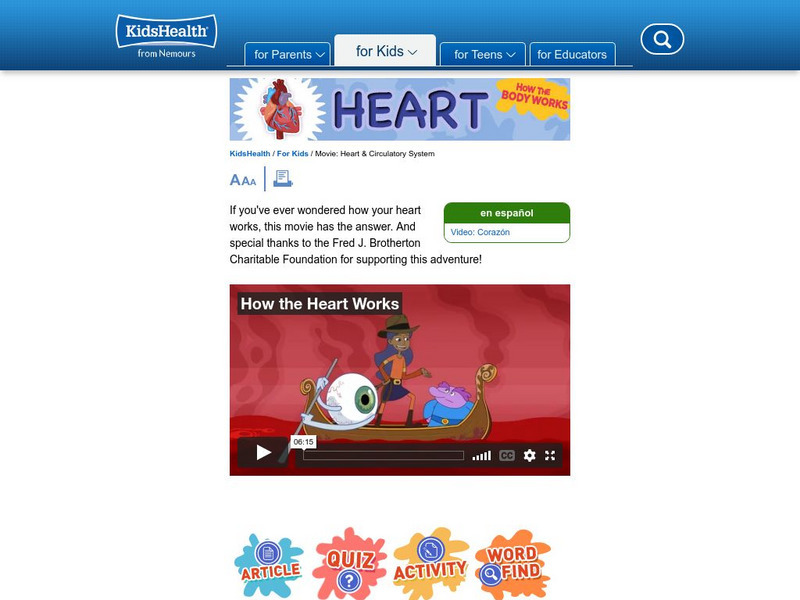Catalyst University
Overview of Fetal Circulation
In this video, we explore the anatomy of fetal circulation and important, relevant structures.
The Noted Anatomist
The ventricular system
This video tutorial discusses the ventricular system of the brain including cerebrospinal fluid (CSF) production, flow, drainage and function. 0:00. Intro to ventricles 0:36. Lateral ventricles 1:13. Interventricular foramen (of Monroe)...
Catalyst University
The Mechanism of Commotio Cordis
Have you ever wondered what commotio cordis is or what causes it? In this video, we dissect the physiological mechanism of commotio cordis.
Mazz Media
Exercise and Cardio Vascular Activity
In this live-action program viewers will learn that cardiovascular activity is any action that elevates your heart rate for an extended period of time. Students will come to understand that changes in our cardiovascular system occur when...
Professor Dave Explains
The Circulatory System Part 1: The Heart
The heart! What a symbol of love and affection. But does emotional processing really take place in the heart? Sorry romantics, but no. That's the brain's business. But the heart is still miraculous. It is a completely natural pump whose...
Catalyst University
Anatomy - Major Parts of the Brain [Midsagittal View]
In this video, we look some of the major parts of the human brain from a midsagittal view.
FuseSchool
How the Heart Works
The main job description for this muscular organ is to pump oxygenated blood throughout your body... from the top of your brain to the tips of your toes… in fact, your heart transports all your blood around your body about 1000 times a...
FuseSchool
The Structure of the heart
Our heart, a universally recognised symbol of love, kindness and compassion. The heart is one of the hardest-working organs in your body after all it is responsible for pumping blood throughout a vast array of blood vessels, spending...
Professor Dave Explains
A Journey Through the Heart
We've learned about the structure and function of the heart, but what does it really look like in there? What would it be like to be a red blood cell, and swim around, from atrium to ventricle, in and out the major arteries and veins?...
Curated Video
First person from doctor treating victim
HEADLINE: Doctor Explains Stingray Attack on Florida Man
CAPTION: A medical expert explains the details of a stingray attack, that pierced the heart of Florida boater. (Oct. 19 )
SOT: " This is the heart as it would sit in the...
Khan Academy
Khan Academy: Biology: Circulatory System and the Heart
An introduction to the circulatory system and the heart. [14:56]
Curated OER
Kids Health: The Circulatory System
This short movie gives you a fun way to learn the basics of the heart and how the circulatory system works. From KidsHealth.
Sophia Learning
Sophia: Heart and Blood Flow: Heart
A narrated tutorial to identify the major structures of the heart and the specific role in the overall functioning of the heart. [6:55]
Khan Academy
Khan Academy: What Is Preload?
Some say Preload = End-Diastolic Pressure, others say Preload = End-Diastolic Volume, so which one is it? Watch and find out! Rishi is a pediatric infectious disease physician and works at Khan Academy. [13:32]
Khan Academy
Khan Academy: What Is Eisenmenger Syndrome?
A video [10:00] explaining how Eisenmenger syndrome is when blood in the heart shunts from right-to-left due to increased pressure in the right ventricle. This increased pressure is usually caused by extra blood flowing through the blood...





